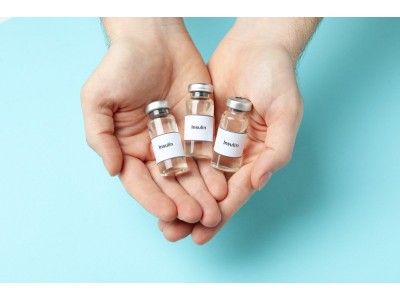There are several types of insulin available, each with different onset and duration of action, which are used to manage diabetes. These include:
Rapid-acting insulin: Examples include insulin lispro (brand name Humalog), insulin aspart (NovoLog), and insulin glulisine (Apidra). These insulins start to work within 15 minutes after injection, peak in about 1 to 2 hours, and last for 3 to 4 hours.
Short-acting insulin: Regular insulin (brand names include Humulin R, Novolin R) is a short-acting insulin. It typically takes effect within 30 minutes, peaks at around 2 to 3 hours, and lasts for about 3 to 6 hours.
Intermediate-acting insulin: NPH insulin (Neutral Protamine Hagedorn) is an intermediate-acting insulin (brand names include Humulin N, Novolin N). It starts working within 1 to 2 hours, peaks in 4 to 8 hours, and can last up to 12 to 18 hours.
Long-acting insulin: Examples include insulin glargine (Lantus, Basaglar, Toujeo), insulin detemir (Levemir), and insulin degludec (Tresiba). These insulins have a steady effect over an extended period, often lasting up to 24 hours or longer.
Ultra-long-acting insulin: Insulin glargine U300 (Toujeo) and insulin degludec (Tresiba) are newer formulations with an even longer duration of action compared to traditional long-acting insulins.
Costs of insulin can vary widely depending on factors such as brand, formulation, dosage, and healthcare coverage. In the United States, the prices for insulin can range from relatively affordable to prohibitively expensive for some individuals without insurance or adequate coverage. Generic options for some types of insulin, such as regular insulin and NPH insulin, may be available at lower costs compared to brand-name versions.
It's important for individuals using insulin to consult with their healthcare provider and pharmacist to explore cost-effective options, including generic alternatives, patient assistance programs, and potential discounts or coupons offered by manufacturers. Many pharmaceutical companies offer patient support programs to help individuals afford their insulin medications.
For the most current and specific information on insulin types, brands, costs, and availability, it is recommended to consult with a healthcare provider or pharmacist, as these factors can vary based on location and healthcare system.
